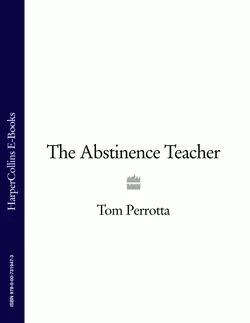The Abstinence Teacher

Tom Perrotta
Тип: электронная книга
Жанр: Современная зарубежная литература
Язык: на английском языке
Стоимость: 232.15 ₽
Статус: В продаже
Издательство: HarperCollins
Дата публикации: 16.04.2024
Отзывы: Пока нет Добавить отзыв
О книге: A sharp, funny and beautifully observed satire about the disturbing influence of the Christian right from one of America’s most cherished authors.Ruth Ramsey went too far. She hadn′t noticed the changing climate. A Sex Ed teacher «championing» oral sex!? Not now, not in this America…Cherished by her high school pupils as someone who′d tell it straight, after one innocent classroom indiscretion Ruth suddenly finds the curriculum she has taught for nigh on 15 years worryingly out of vogue. It seems these days the kids no longer need teaching; they need telling. As the scandal flares up and attracts the unwelcome eye of the local evangelical Church, the appeasing high-school principal forces her into advocating a pro-abstinence agenda in the classroom that is at odds with all conventional wisdom. Jaded though she is by her recent divorce and fruitless search for a new love, she is not yet ready to kneel at the altar of sophistry – if common sense is to be sacrificed to Puritanism, she won′t let it pass without a fight.On the other hand, it is a syllabus change which Tim Mason, recovering addict, local football coach and recent convert to the same plaintiff Church, should consider a victory. But his new found faith is constantly put to the test by the temptations of his former wayward life, forcing him into grand, defensive statements of purpose. When he makes the gesture of leading his football team in prayer after a hard-fought victory, in which Ruth′s daughter Maggie starred, he manages not only to incur the wrathful attention of her mother, but to cement his position as the star evangelist of his church – an office he is none too sure about occupying.‘The Abstinence Teacher’ is a cutting portrayal of modern America and the influence of the Christian right from the acclaimed, bestselling author of ‘Election’ and ‘Little Children’. Scathing, witty and brilliantly observed, it will doubtless confirm Perrotta′s standing as one of the finest chroniclers of American life.